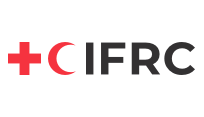T.14 Focus Group Discussion (FGD)
A Focus Group Discussion (FGD) is a facilitated discussion with a small group of people who share certain characteristics (e.g. a group of women) enabling them to share different views and opinions on a specific topic. FGDs can be useful in WASH programmes to discuss sensitive topics such as hygiene and sanitation practices.

An FGD is a participatory tool aiming to involve affected people, listen to their views and better understand the perspectives of different groups within the community. An FGD works best in groups of 8-12 people, with separate groups for men, women, elders or marginalised people and with a focus on a specific topic such as Menstrual Health and Hygiene P.7. It is important to be clear about the purpose, the population of interest and the issues to be explored. A supportive environment is also important so that the group feels relaxed enough to exchange views and ideas with others. It is a useful method for listening to the views of marginalised groups, as they may be reluctant to talk in larger mixed groups. The discussion can reveal helpful in-depth information or deeper insights into the context, adding to the more general information collected by surveys. The data collected from an FGD is always qualitative - what people think and feel rather than the number of people practising a specific behaviour. Preparing a Checklist T.2 with key discussion points can help to facilitate the discussion. If there are specific issues or problems, the group can generate suggestions for addressing them. The facilitation team (and notetaker) should discuss, analyse, document, compile and share the results with other stakeholders, including participants.
Applicability
FGDs can be used in all situations, response phases and stages of the programme cycle: (1) during an assessment to understand people’s views, problems and needs (2) as a monitoring tool (3) for feedback about the community’s level of satisfaction and views on the effectiveness of the programme. FGDs are easy to replicate; the same method can be used with different groups at different times. They can take time to organise and carry out and should be used with other methods.
Do
Provide space for interaction and discussion
Enable the exploration of more information on topics as they arise
Use a good facilitator and a separate notetaker so that the flow of discussion is not interrupted
Don't
Do not rely on FGDs alone, but use them with other methods
Do not use the FGD as a ‘question and answer’ session; ensure that it is a genuine discussion
Do not invite a large group; it is difficult to manage and becomes more like a meeting than a discussion
Practical Example
FGDs were used in a WASH response in Bangladesh with groups of women discussing how they felt about using the latrines. Questions included whether they felt safe using them, including at night, and how they managed menstruation? Many women said they did not use them at night and preferred to go to the toilet in the corner of their shelter. They also requested somewhere to wash and dry menstrual cloth.
Key Decision Critria
Response Phase
HP Component
Target Group
Application Level
References Details of how to do FGDs (incl. sample questions, checklists and training materials)
IFRC, UNICEF (2020): Guide to Run Focus Group Discussions with Community Volunteers. Risk Communication and Community and Community Engagement for the New Coronavirus
IFRC (undated): Focus Group Discussions. EVCA Toolbox
SSWM (undated): Focus Groups
Ferron, S., Morgan, J. et al. (2007): Hygiene Promotion. A Practical Manual for Relief and Development, Practical Action Publishing. ISBN: 978-1853396410
GWC (2009): Training for Hygiene Promoters and HP Coordinators. Part 1 of 3. Essential to Know
Suggested questions for a FGDs with women about menstrual hygiene
IFRC (2019): Focus Group Discussion Guide – Assessment. Menstrual Hygiene Management in Emergencies (Available in different languages)
FGD guidance with key points to consider before, during and after and with focus on COVID-19
IFRC, UNICEF (2020): Focus Group Discussion Guide for Communities. Risk Communication and Community Engagement for the New Coronavirus





